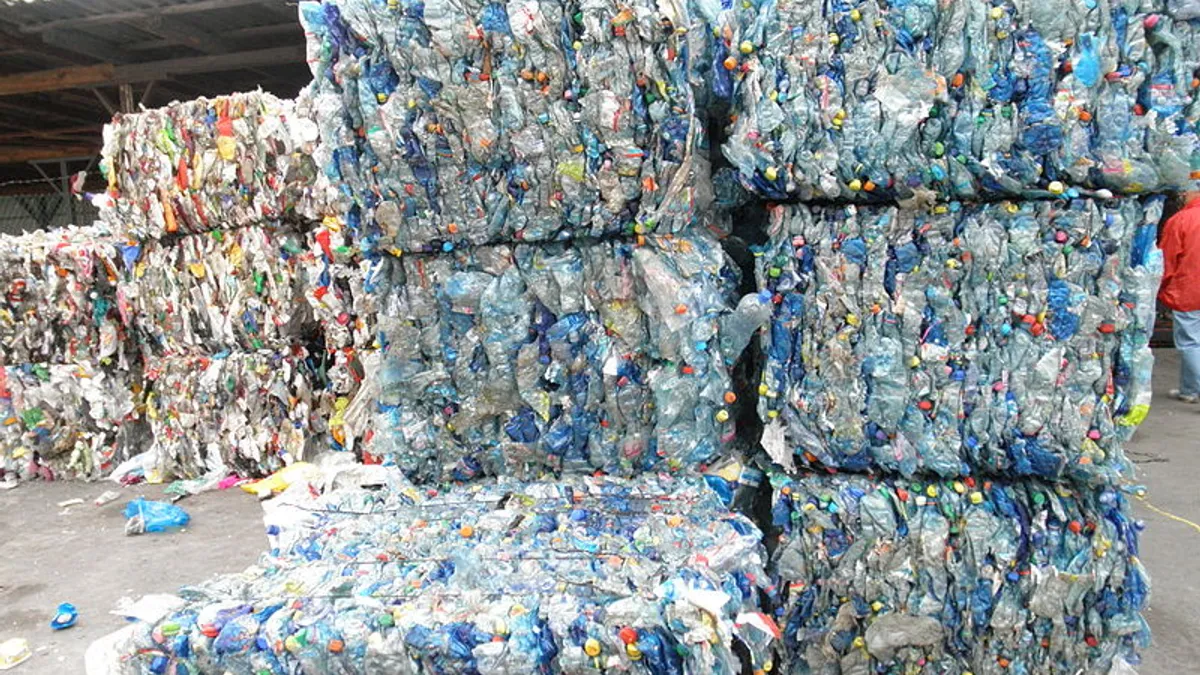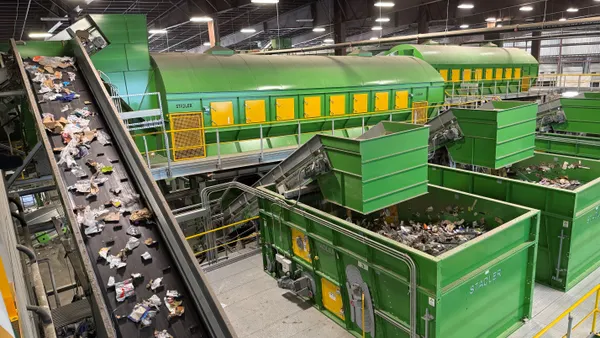Dive Brief:
- The American Chemistry Council's (ACC) Plastics Division announced Wednesday its members have set three ambitious goals: to ensure 100% of plastic packaging is recyclable or recoverable by 2030; to reuse, recycle or recover 100% of plastic packaging by 2040; and for all U.S. manufacturing sites operated by members to participate in Operation Clean Sweep-Blue (OCS) by 2020, with all sites in North America involved by 2022.
- Steve Russell, ACC's vice president of plastics, said in a press briefing the goals will be achieved "through innovation and through cooperation." ACC will focus on six key areas: designing new products; developing new collection, sorting and recycling technologies; improving consumer participation; expanding the types of plastics collected; aligning products with end markets; and expanding awareness of used plastics.
- By participating in OCS, member sites will commit to submitting data to the Plastics Industry Association and to ACC on metrics including amounts of resin pellets shipped and received, and amounts of pellets lost to the environment.
Dive Insight:
During the press briefing Russell said there had been a dissatisfaction across ACC with the rate of plastics recycling, which resulted in this decision to take aggressive action. These targets, however, will be a challenge to hit, especially if there isn't substantial buy-in from industry stakeholders.
He did note "pretty dramatic" commitments are being made across the plastics industry to include recycled content in products. "That's a good signal to the industry that there is wide and growing alignment on the need to do more and to do more faster," he said. "Yes [the goals] are aggressive but we think we can get there."
Russell also emphasized the importance technology will play in hitting these goals, including developing sortation technology that can improve bale quality and value, and developing innovations on the treatment side. "We're going to need to both improve the capacity and the scale for recovery technologies, and to better develop the end use markets for all kinds of recycled plastics," he said.
The distinction of recycling versus recovery was also clarified. Russell defined recycling as mechanical recycling, and recovery as the application of other technologies, such as pyrolysis and gasification systems, to blend plastic waste with other materials and develop new products. Initiatives such as the EnergyBag program have proven to be successful in collecting non-recyclable plastic materials from consumers — such as chip bags, juice pouches and other packaging — and turning them into fuel using pyrolysis.
While the bar is set high, Russell and other leaders have expressed significant confidence in the targets. By even attempting to achieve them, members are advancing the industry's goal of attaining a circular economy and committing to sustainable materials management.














